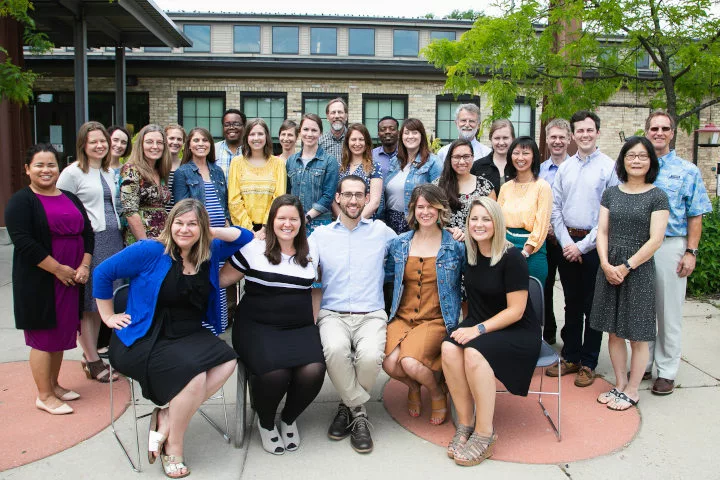To date, 80 masters- or doctoral-prepared fellows from diverse backgrounds have been placed in more than 40 local and state public health and community-based organizations. The number of graduating fellows currently contributing to, or leading, Wisconsin’s public health workforce continues to grow, with 69 percent of fellows currently staying in Wisconsin.
Paula Tran Inzeo, MPH, a former fellow and current director of the UW SMPH Mobilizing Action Toward Community Health Group says, “The Fellowship Program truly catalyzes career trajectory. Fellows have the opportunity to work and lead at a much higher level than they would have if they had taken entry-level public health jobs. This opportunity, combined with the networks they build, creates a career launching pad not available elsewhere.”
The fellows are widely recognized for their outstanding contributions to the organizations and communities they serve. Specifically, fellows have contributed to the receipt of more than $1.4 million in grants addressing maternal and child health, as well as efforts to address Ebola preparedness, immunizations, response to flu and improving health outcomes for those living with AIDS/HIV.
Thomas Oliver, PhD, MHA, MA, a professor in the Department of Population Health Sciences and director of the Fellowship Program, is pleased with the contributions the fellows are making and their commitment to the state. He says, “It is truly remarkable that many of the Fellowship alum remain in Wisconsin, given that they come from all over the country. Not only are they learning and working here—they are building their careers and lives in Wisconsin as well.”
With the recent launch of its fifteenth cohort of fellows, the scope of the program continues to evolve. It is deepening its focus on health equity and is broadening its geographic reach to more rural and tribal communities in an effort to address the unique health challenges facing many Wisconsin communities.
Says Oliver, “The Fellowship Program is emblematic of the mission of the Partnership Program to improve health and health equity in Wisconsin. Our program continues to grow and evolve in ways that make that vision likely, thanks to the Partnership Program’s investments in education and people.”
Creating Fellowship
The Population Health Services Program is a fellowship in the true sense of the word. Through its learning communities and partnerships with preceptors across the state, a network of public health learners and leaders flourishes and benefits organizations and communities in multiple ways.


